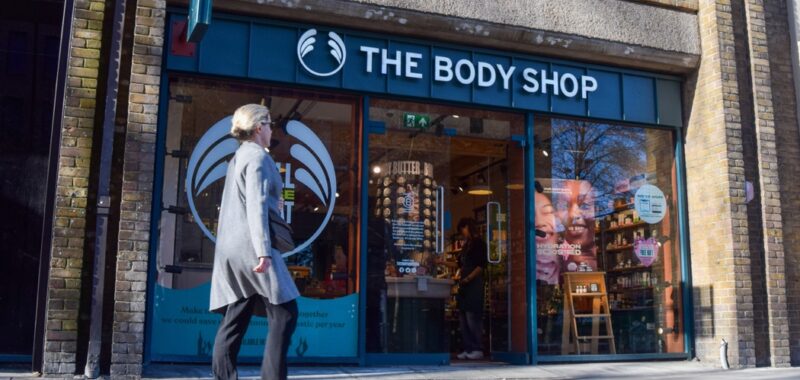The parent company of The Body Shop in the UK has been acquired out administration by Auréa, a growth capital firm led by the British cosmetics tycoon Mike Jatania. The financial details of the operations have not been disclosed.
Auréa Group, which has three other beauty brands – Herbivore Botanicals, Scandinavian Biolabs and Dcypher – in its portfolio, will also gain control of the Body Shop’s assets in Australia and North America.
“A truly iconic brand”
This investment demonstrates Aurea’s focus on backing purpose-led and differentiated brands in the Beauty, Wellness and Longevity sector and represents its largest transaction to date,” the private equity firm said in a statement.
As it was announced in July, Mike Jatania and Charles Denton will serve as executive chairman and CEO respectively.
“With The Body Shop, we have acquired a truly iconic brand with highly engaged consumers in over 70 markets around the world,” said British tycoon and Aurea co-founder Jatania.
“We plan to focus relentlessly on exceeding their expectations by investing in product innovation and seamless experiences across all of the channels where customers shop while paying homage to the brand’s ethical and activist positioning.”
The Body Shop new chief executive Charles Denton added: “We recognise that revitalising the business will require bold action and a consumer-centric, commercially agile mindset. We believe there’s a sustainable future ahead and working closely with the management team we aim to restore The Body Shop’s unique, values-driven, independent spirit.”
However, the 113 remaining stores are expected to continue trading under the new deal.
Several months of uncertainty
This acquisition concludes months of uncertainty and concern about the 50-year-old business entered administration in February.
The Body Shop, which then employed 7,000 people worldwide, including 2,200 in the UK, announced the closure of more than 80 of its 198 UK stores and more than 750 job cuts in the country. At the same time, several subsidiaries around the world have been closed down altogether.
The Body Shop was founded in 1976 in Brighton (south of England) by British entrepreneur Anita Roddick. The visionary founder, who died in 2007, rapidly expanded the business from modest beginnings with a determination to offer products that had not been tested on animals. She also set out to make her business environmentally friendly, with customers encouraged to return empty containers for refilling.
L’Oréal bought the brand in 2006 for around 940 million euros, when it was at the height of its fame, before selling it in 2017 to the Brazilian group Natura. Highly in debt after having also acquired Avon in 2019 and hit hard by the rise in interest rates, Natura sold The Body Shop at the end of 2023 for a fifth of the price paid to L’Oréal.
Over the year The Body Shop had become a staple of the British high street and was acquired by L’Oréal in 2006. The French cosmetics giant then sold it in 2017 to Brazil’s Natura. However, the South American beauty group then went on to buy Avon in 2019, a badly timed deal that left it with a hefty debt pile as the Covid pandemic hit and then interest rates began to rise around the world.
German private equity firm Aurelius had bought The Body Shop in November, but the retailer ran into trouble in a tough economic climate over the key Christmas trading period.

